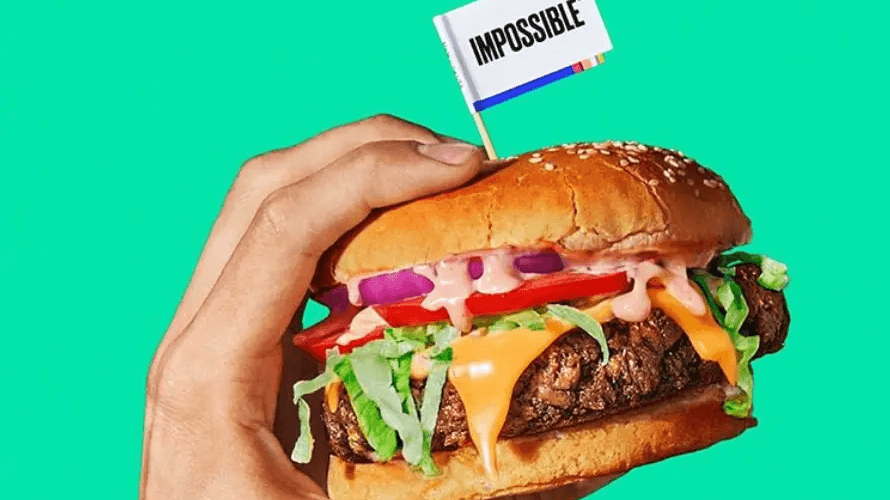Impossible Foods cut prices of their plant-based meat for the second time in a month

A few minutes every morning is all you need.
Stay up to date on the world's Headlines and Human Stories. It's fun, it's factual, it's fluff-free.
With the increasing popularity of plant-based meat, one would naturally expect the prices for these products to rise. However, Impossible Foods have cut prices for their retail products by 20% for a second time in a month and third time within a year after successfully achieving economies of scale.
Retail food prices for vegan burgers going down
The California-based plant-based meat alternatives producer announced that the Impossible Burger patty will now retail for US$5.49, and the 12 oz. burger will be sold at US$6.99. Currently, the company sells their products at more than 17,000 supermarkets in the United State alone, including popular retailers such as Walmart, Trader Joe’s, Target, Wegmans, Kroger and e-commerce stores like Amazon Fresh. The 10-year-old company is also encouraging other countries where they offer products like Canada, Singapore and Hong Kong to follow through and cut prices to “pass the savings to consumers as soon as possible.”
Founder of Impossible Foods Patrick Brown said: “Our plan is to reverse global warming and halt our planet’s extinction crisis by making the food system sustainable. With economies of scale, we intend to keep lowering prices until we undercut those of ground beef from cows. Today’s price cut is merely our latest – not our last.”
President of Impossible Foods Dennis Woodside said that they eventually want to sell their products for cheaper than current ground beef prices, which retail between US$2-3 per patty. “That’s the goal. Compete with the cow, and to do that we have to price like the cow,” said Woodside. He added: “Impossible products are becoming increasingly affordable, and this in turn is accelerating our rapid retail growth. It’s a virtuous cycle for our customers, consumers and the planet.”
Plant-based meat is taking off
Talking about their sales, the company reported that sales in the US skyrocketed to 17,000 grocery stores, compared to a meager 150 supermarkets last year, and that the growth resulted in production increasing more than sixfold. Woodside said: “Our production is up nine times in the past two years. We’ve been able to get economies of scale out of the business and efficiencies in our production footprint, and we’re just passing those along to the consumer.” The plant-based industry is one of the few industries which have been thriving during the COVID-19 pandemic, due to the COVID-19 supply shocks in the meat industry and health & safety concerns regarding meat production. Additionally, Impossible Foods recorded 92% of their total sales directly replacing animal meat, which has contributed to huge environmental savings given the impact meat production has on our planet.
On January 6, Impossible Foods cut prices by 15% for wholesalers that distribute their products to restaurants in an effort to make their products more affordable to the average consumer, and with the rise of popularity in the plant-based industry since the COVID-19 pandemic, Impossible Foods have had to implement competitive prices to stay in the market.
Impossible Foods’ biggest competitor currently in the US and China is Beyond Meat, which launched last year through a partnership with Starbucks across their cafes in China, where they created three dishes made with the Impossible patty. The price cut from Impossible Foods resulted in Beyond Meat’s stock sinking by 6%.
In Hong Kong, Impossible Foods products can be found in around 700 restaurants. In October, Brown said that the Chinese market and ecosystem is “absolutely at the heart” of their expansion plans, hoping they can set up a manufacturing plant and build a domestic supply chain for their ingredients once China’s regulation authorities grant them permission.
Have a tip or story? Get in touch with our reporters at tips@themilsource.com




Comments ()